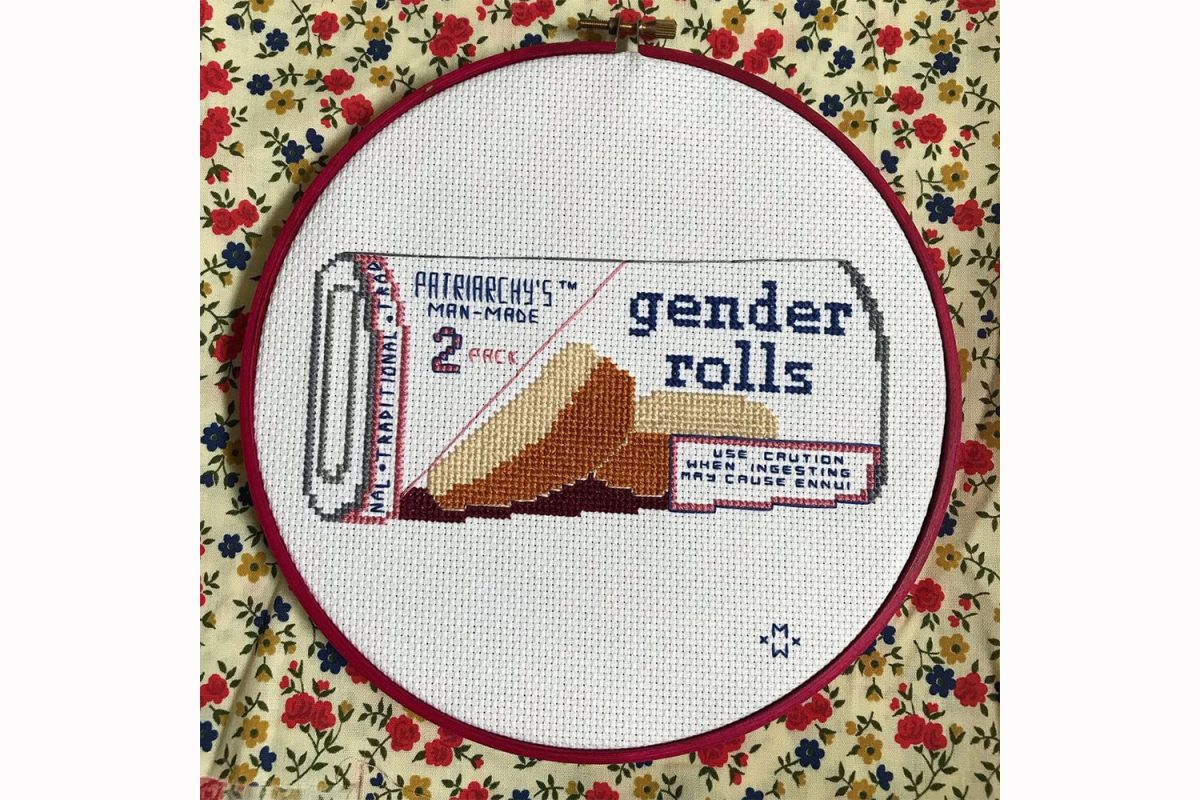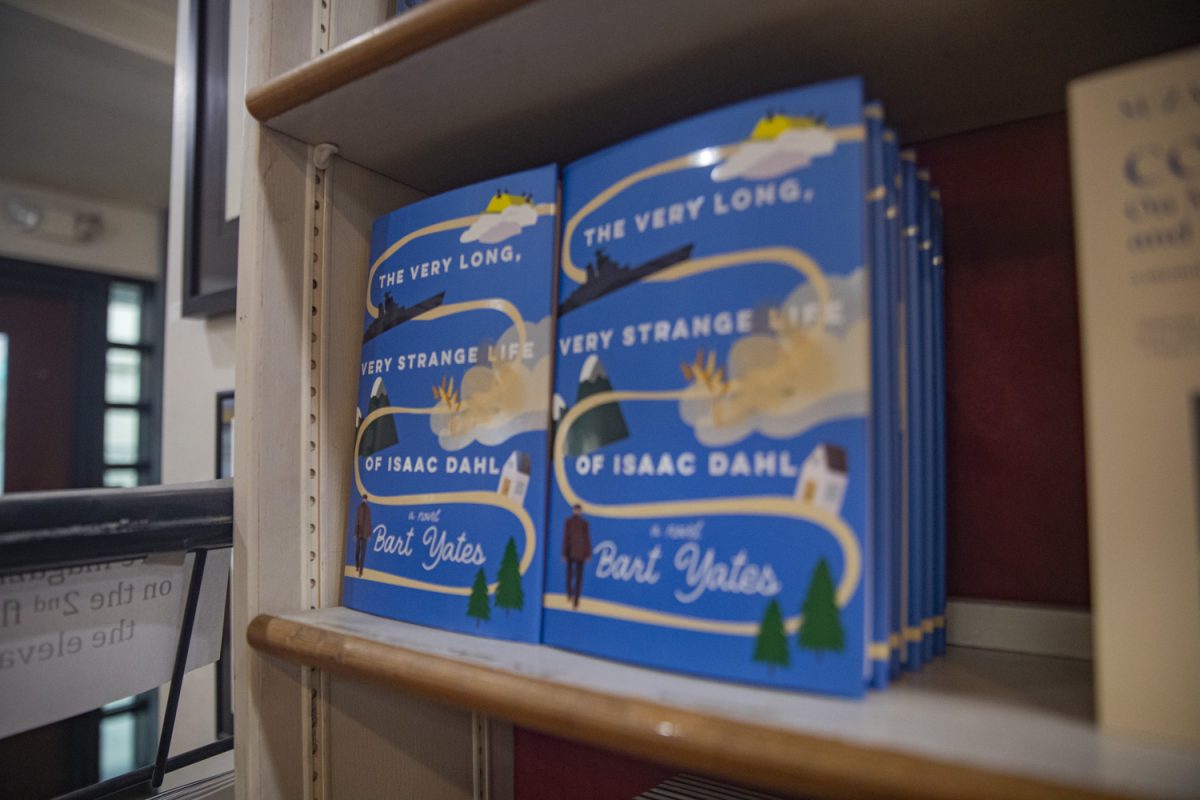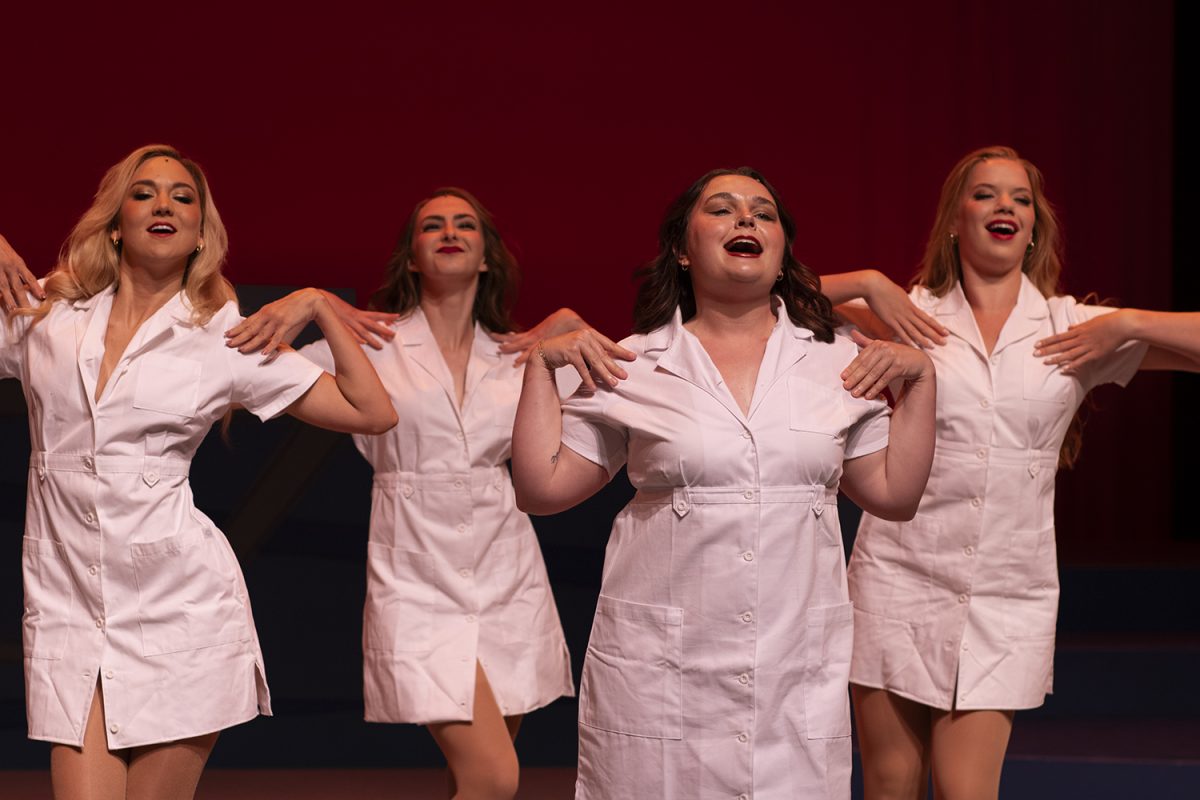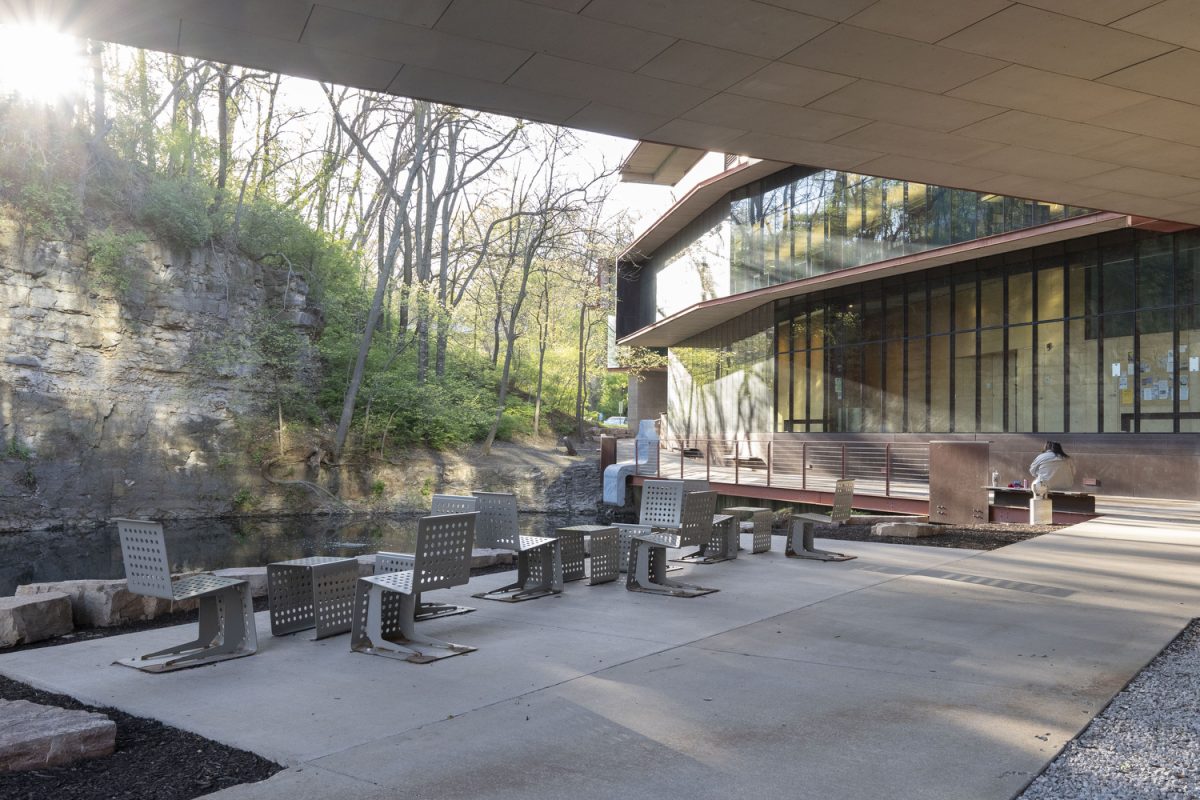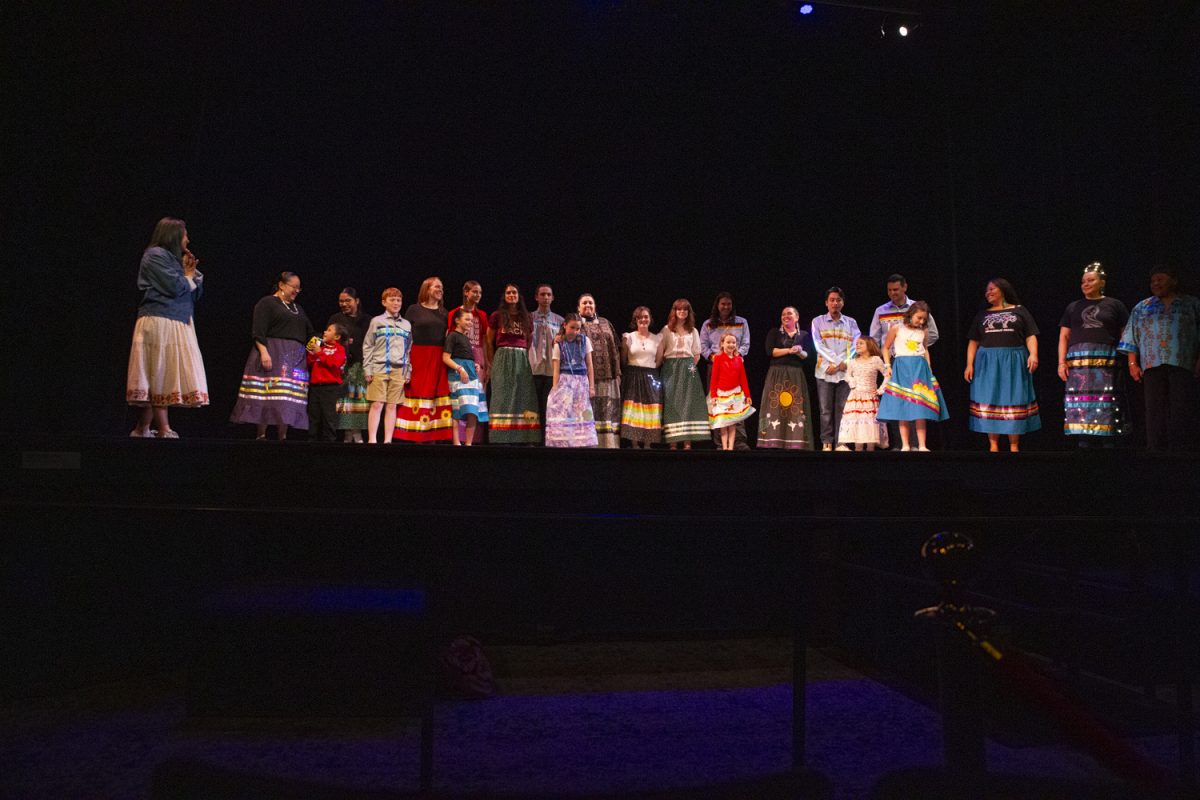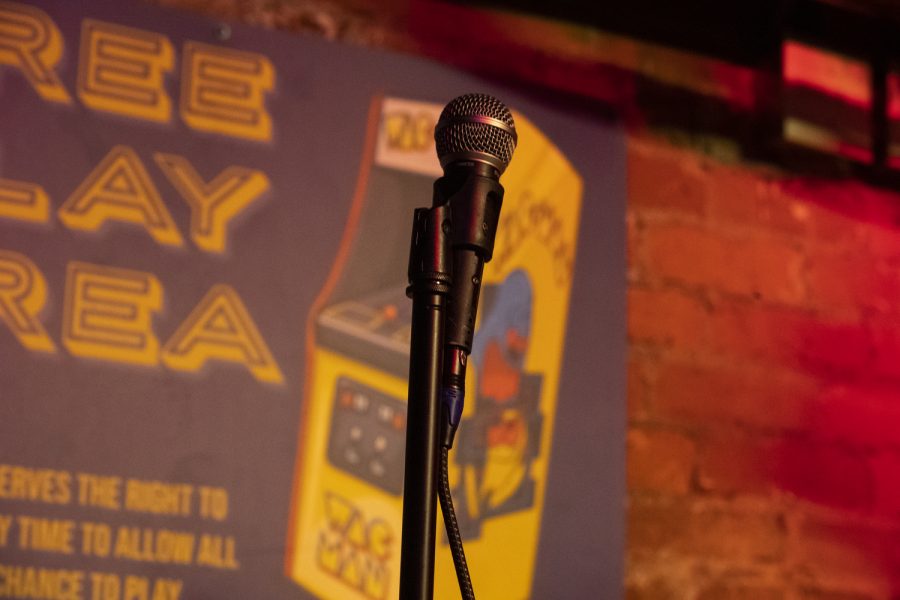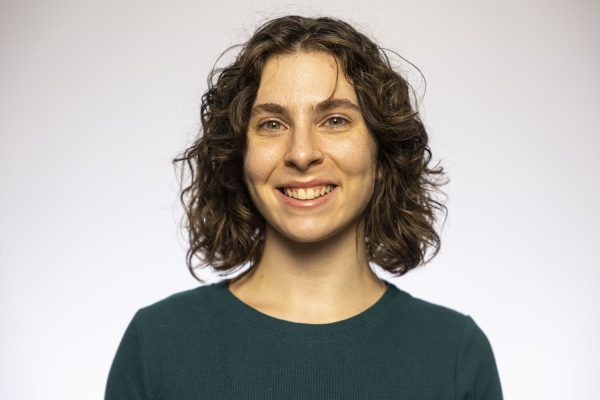A wall in Meagan Wolgast’s home office is covered in unique cross-stitch designs. One design depicts a Carnation Instant Breakfast box that reads “Instant Bit: Just add misogyny” as a response to a low-brow joke from “That 70’s Show.”
Another has a stitched image of a tube of biscuits titled “Gender Rolls.” Wolgast added the warning, “Use caution when adjusting, may cause ennui.”
For Wolgast, the fiber arts community allows her access to her inner voice. In 2017, she was in search of a creative hobby but was quick to talk herself out of trying something new. This reservation changed when she came across a book on subversive cross-stitch.
“When I saw [the book] I thought, ‘I know I can do that.’ As long as I learned the stitches, anybody can do it,” Wolgast said.
For Wolgast, her subversive and humorous cross-stitch patterns allow her the freedom to meditate on her values.
“I could finally be a little bit rebellious in ways I was never allowed to be growing up,” Wolgast said. “The more that you ingest gender roles, the more that you’re just slogging through it and confined to a small existence.”
Textile arts have depicted centuries worth of stories and communities. Wolgast, among other subversive textile artists in Iowa City, has continued this tradition through queer crochet, unique cross-stitching, and fabric entrails.
In September 2021, crochet enthusiasts and novices gathered in Public Space One to loop together the brilliantly-colored crochet tent in just 24 hours.
The founders of the textile project, titled “Come Stay a While,” intended to create a space for queer joy and to celebrate fiber arts artistry rather than diminishing it to its practicality. The final result was a brilliantly colored tent that radiated a sense of warmth and joy inside.
“Our goal with the project was being feminine-presenting people who are doing an art practice traditionally done by women and prioritize joy and happiness, and having fun with it,” Quinlan Stafford, one of the project’s founders, said.
Stafford picked up crocheting in the fall of 2020 to keep herself busy as she completed the majority of her COVID-19 semester from her dorm room.
Eventually, she discovered the state’s LGBTQ Archives and Library’s weekly craft group where she enjoyed practicing her craft and belonging to a community.
Stafford’s hobby gave her a community and a newfound identity as an artist. She said seeing the tent in its completion allowed her to recognize herself as a fiber artist and displayed the power of fiber arts as a medium.
Kenzi Rayelle began at the University of Iowa as a printmaker but, eventually, she grew tired of the limitations of 2-D and moved towards textile and sculpture to work with her hands in a physical realm.
By graduation, Rayelle was fully pursuing textile arts. Her Bachelor of Fine Arts show, entitled “Meat: An Exploration of Familial Trauma” was a humorous hyperbolic depiction of a Victorian-era butcher shop in which she explored the generational trauma endured by the women in her family.
For Rayelle and the women in her family, quilting is a long-respected practice. Including this practice was important for the narrative of her Bachelor of Fine Arts show.
Rayelle depicted a quilted woman sewn together and a diagram screen printed onto her of the different ways to cut and cook her.
Her first show in a lifelong series was presented at PS1 in 2023. Entitled “Innerconnectivity I,” the exhibit examined conversations she had with her present self through fabric entrail arrangements.
Her shows spurred conversations with those who shared similar experiences, and it offered an opportunity for healing.
“The more and more I find about my identity the more I’m finding how important it is to show an aspect of gore in a way that celebrates the body, that celebrates womanhood, that celebrates the idea of the beauty of being,” Rayelle said.





